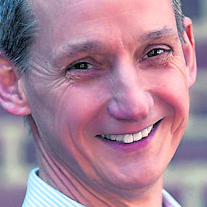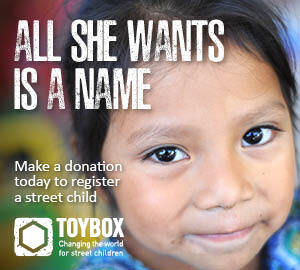Understanding OCD
The emergence of coronavirus and the subsequent pandemic has ushered in a very strange period of history. From extreme restrictions on travel to profound limitations on social contact, we have entered a new world where reduction of risk and prevention of contamination seem paramount.

But when a government official invites us all to be a bit more OCD (Obsessive Compulsive Disorder) with our social distancing and handwashing, I can’t help wondering how that sounds to those who really struggle that way. For them reduction of risk and prevention of contamination may have been a life-dominating concern for years. Are they irritated by such casual reference to their difficulties? Or affirmed because people finally see just how dangerous the world really is?
Yet, despite certain superficial similarities, these things aren’t really the same. Our coronavirus-driven determination for handwashing is voluntary. We need reminding to do it and struggle to see out the full 20 seconds. Handwashing associated with OCD needs no reminders – powerful unwanted thoughts and persistent unbidden fears compel a person to wash.
How is a Christian to think about OCD? Is it simply a neurochemical phenomenon to be recalibrated with appropriate psychotropic medication? Well, there certainly is evidence for a biological component to OCD. Individuals show a genetic predisposition and occasionally a brain injury or certain kinds of infection are associated with its onset. But identifying physical factors doesn’t exclude the role of our hearts and minds.
And exploring the part our mind /soul can play in obsessions and compulsions helps us see patterns with relevance for us all.
The demand for certainty
The ‘what if’ and ‘how can I be absolutely sure’ phenomenon is one example. Someone with OCD will often feel compelled to check and check and check again. Did I really lock the door? Am I sure the gas taps are off? What if I lost concentration at that last junction and caused an accident? Am I sure I didn’t touch that handrail – what if it’s contaminated?
The agony of such thoughts is hard to overemphasise. Endless cycles of checking, washing or other compulsive behaviour reduces anxiety in the short term, but the thoughts return and soon longer and more complex rituals are needed. Five minutes handwashing becomes ten, or 20, until hours are spent in compulsive behaviours.
This isn’t the place for a step-by-step guide to the treatment of OCD. My aim is much more modest – simply to identify patterns and suggest relevant biblical themes.
Notice, first, that behind this demand for certainty lies an exaggerated sense of our own capacity. In reality, we can’t be sure. Not of anything. Not really. And that’s because we are finite. We don’t know everything; we can’t control everything; and we certainly can’t do everything. As finite creatures we were designed to be dependent. Woven into every effort for certainty is a pursuit of something that doesn’t belong to us.
Dealing with our guilt
Secondly, notice how overwhelming guilt often accompanies OCD. Often the fear plaguing people isn’t getting an infection but giving one. It’s not themselves they are protecting, but the rest of the world. They must prevent illness; stop traffic accidents; avoid financial ruin. ‘How do I know I didn’t do something terrible?’ In OCD, thoughts can fuse with reality. ‘If I thought it, perhaps I did it.’
But when our response to guilt involves obsessive checking and compulsive hand washing, it’s clear that our reliance falls on ourselves. We are the saviour, the protector, the sovereign. As if it’s our job to hold back sin and prevent harm. But such potency is beyond us. We can’t stop sin and we can’t prevent evil. When we pretend otherwise, we overreach. Instead of depending on God, we try to become our own saviours. All of us are vulnerable to this – the experience of OCD just helps us see it writ large.
Anxiety doesn’t get much worse than OCD. And these two features help us see why. In OCD we are trying to be someone we are not; reaching, in some senses, for the kind of godlike powers that are far beyond us. And, like an untrained passenger alone at the controls of a jumbo jet, we are terrified.
But into that experience Scripture speaks. Not just to people with OCD, but to all of us. Because all of us overreach and frighten ourselves with things ‘too wonderful’ for us (Psalm 131:1). Which is why it is a relief when God says: ‘Listen to me… I am he; I am the first, and I am the last’ (Isaiah 48:12). And we respond by saying: ‘I have calmed and quietened myself, I am like a weaned child with its mother; like a weaned child I am content (Psalm131:2). Once again I remember that God is God.
More about Biblical Counselling UK is available at www.biblicalcounselling.org.uk or you can contact them at info@biblicalcounselling.org.uk or c/o Christ Church, Christchurch Street, Cambridge CB1 1HT



